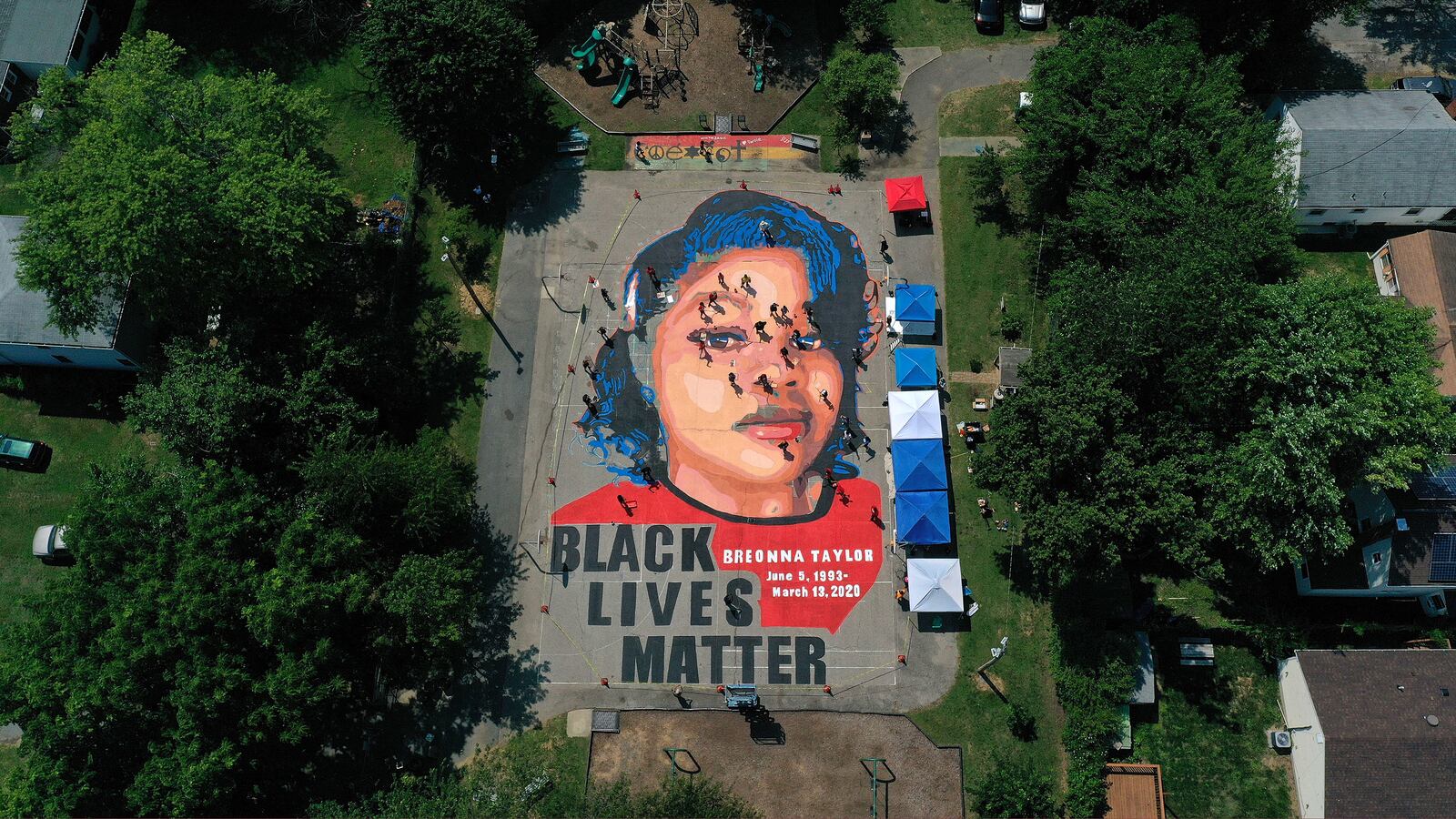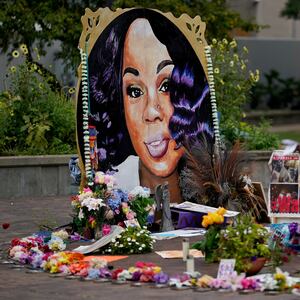Sometimes there is a difference between law and justice.
On Wednesday, Kentucky Attorney General Dan Cameron announced that a police officer would be charged in the shooting incident that killed Breonna Taylor. But the officer who was charged is not one of the officers who shot at her.
Former Detective Brett Hankison was charged with three counts of wanton endangerment for firing shots that entered a neighboring apartment where a couple and their five-year-old child were sleeping. They were not physically harmed. Hankison was dismissed from the Louisville Metro Police Department after the incident for violating policy that forbids shooting without a line of sight. He fired his weapon into a door and window that were covered by blinds. Wanton endangerment is a felony that is punishable by five years in prison for each count.
In contrast, the two officers who fired the shots at Taylor and her boyfriend were not charged with any crime at all. The announcement left many people outraged that yet another Black life was taken without anyone being held criminally responsible.
But blame the law, not the lawyer. In cases of excessive force, the law is stacked in favor of the police, making it very difficult to charge officers with crimes.
The facts, as described by Cameron, were that on the night of March 13, officers with a search warrant arrived at Taylor’s home after midnight. They knocked on her door and announced themselves as police. When the door was not opened, they used a battering ram to force entry. Once inside, they could see two individuals, side by side, at the end of a dark hallway. One of those figures fired a gun at them, hitting one of the officers in the leg. The officers returned fire, 32 shots in all, striking and killing Taylor.
That was the perspective of the police. Taylor’s boyfriend, Kenneth Walker, has provided a different perspective. He said that he and Taylor were asleep that night, and were awakened by loud noises. He left the bedroom with his gun to investigate. Believing that he was defending himself and Taylor from intruders in her home, he fired a shot at the men who had just rammed down the door, as Kentucky’s “stand your ground” law permits. The men returned fire, killing Taylor. Only after the shots were fired did Walker learn that the men were police. He had not heard anyone say “police” before entering the apartment.
Walker was initially charged with attempted murder for shooting at the officers, but the charges were later dropped. He was licensed to carry the gun.
When most of us hear a story like the tragic one about Taylor’s death, we put ourselves in the shoes of the victim. We imagine what it must have been like to be awakened in the middle the night by the sounds of unwelcome strangers breaking down your door. And we imagine that if we were killed under those circumstances, someone would be charged with a crime.
But the law looks at incidents of police shootings from the perspective of the police officers, the “reasonable officer at the scene,” the cases say. Jurors are told that they should consider that when an officer makes a decision to shoot, his conduct must be considered in light of the fact that police officers are required to make split-second decisions, under tense circumstances and in rapidly evolving situations.
Juries cannot look at an incident with the 20/20 vision of hindsight but must consider the situation from the perspective of the officer at the moment of the incident. Under that standard, when we look at the officers facing an armed gunman who has just fired at them, self-defense becomes a strong argument.
To stack the deck in favor of the police even higher, a 2017 Supreme Court case, Los Angeles v. Mendez, held that when looking at an officer’s conduct, courts should consider separately each potential violation of the Fourth Amendment’s prohibition on unreasonable searches and seizures.
The Court rejected a doctrine called the “provocation rule,” which had said that an officer acts unreasonably if he improperly provokes a confrontation that results in his use of force, even if that force itself was reasonable. So even where an officer’s improper conduct “sets the table” for his use of force, the force is permissible if it is reasonable when viewed in isolation.
In this case, the Court’s decision means that the officers are not guilty of a crime for shooting at Walker and Taylor, even if they provoked them by creating a dangerous setting when they served a search warrant after midnight, in the dark, and rammed down her door. Once they found themselves on the receiving end of gunfire at the end of a dark hallway in Taylor’s apartment, they were permitted to shoot.
The charges announced by Cameron are particularly unsatisfying because Taylor’s death has become a rallying cry for the Black Lives Matter movement. The 26-year-old emergency medical technician was not even a target of investigation. Her apartment was the subject of a search because it was believed that a former boyfriend was trafficking in illegal drugs and was receiving packages there. No evidence of crime was found at her apartment.
The law deliberately safeguards officers who are asked to put themselves in harm’s way to protect others. Judges and justices use their best judgment to apply the law to the facts of cases, but they bring with them their own worldview of conduct that is reasonable under the circumstances of any case. Taylor’s case may be an accurate application of the law, but it begs us to reconsider whether the law leads to just outcomes.
Cameron has promised to convene a task force to study best practices in serving search warrants. He might consider the practice in federal cases, where warrants are typically served during daylight hours, usually first thing in the morning, before a subject has left for the day. Cameron would do well to include on his task force members with diverse perspectives and experiences, who could help put officers in the shoes of innocent residents who are awakened in the middle of the night by armed intruders. Perhaps a stronger view of that perspective could bring the law a little closer in line with justice.






